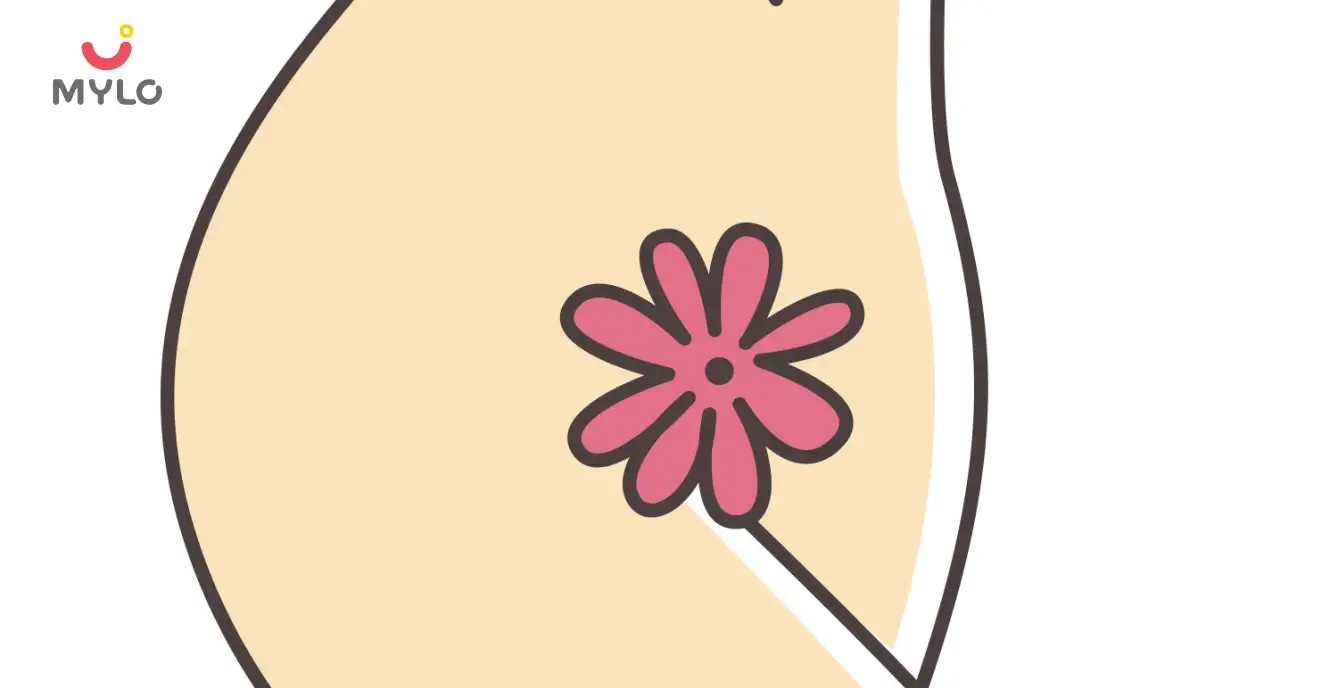Home

Nutrition Tips

The Ultimate Balanced Diet Chart: Your Guide to Optimal Nutrition
In this Article

Nutrition Tips
The Ultimate Balanced Diet Chart: Your Guide to Optimal Nutrition
Updated on 19 September 2023
In today's fast-paced world, it can be challenging to prioritize our health and ensure we're getting the right nutrition. However, following a balanced diet chart is crucial for our overall well-being. A balanced diet provides us with the necessary nutrients, vitamins, and minerals to fuel our bodies and keep us healthy. By understanding the importance of a balanced diet and learning how to prepare a balanced diet chart, we can achieve optimal nutrition and improve our overall health.
What is the Importance of Balanced Diet?
A balanced diet plays a vital role in maintaining good health. Here are five benefits of balanced diet:
1. Weight Management
One of the primary benefits of a balanced diet is its ability to aid in weight management. By consuming a variety of nutrient-dense foods, we can maintain a healthy weight and prevent the risk of obesity and related health conditions.
2. Improved Mental Health
What we eat not only affects our physical health but also our mental well-being. A balanced diet rich in essential nutrients can help improve our mood, reduce the risk of mental health disorders, and enhance cognitive function.
3. Disease Prevention
A balanced diet is essential for preventing various diseases and health conditions. By consuming a wide range of fruits, vegetables, whole grains, lean proteins, and healthy fats, we can reduce the risk of chronic diseases such as heart disease, diabetes, and certain types of cancer.
4. Increased Energy Levels
Proper nutrition is vital for maintaining high energy levels throughout the day. A balanced diet provides us with the necessary carbohydrates, proteins, and fats to fuel our bodies and keep us energized.
5. Enhanced Immune System
Our immune system relies on a variety of nutrients to function optimally. By following a balanced diet, we can strengthen our immune system, reduce the risk of infections, and promote faster recovery from illnesses.
You may also like: 5 Steps to a Healthy Lifestyle: The Blueprint for Your Wellness Journey
What Are the Essential Components of a Balanced Diet?
A balanced diet consists of several essential components that work together to provide us with optimal nutrition. These components include:
1. Fruits and Vegetables
Rich in vitamins, minerals, and antioxidants, fruits and vegetables should form a significant portion of a balanced diet. Aim to consume a variety of colorful fruits and vegetables to ensure you receive a wide range of nutrients.
2. Whole Grains
Whole grains are an excellent source of fiber, B vitamins, and minerals. Incorporate whole grains such as brown rice, quinoa, whole wheat bread, and oats into your diet for sustained energy and improved digestion.
3. Proteins
Proteins are the building blocks of our body and are necessary for growth, repair, and maintenance. Include lean sources of protein such as chicken, fish, tofu, beans, and lentils in your diet.
4. Healthy Fats
While fats often get a bad reputation, healthy fats are essential for our overall health. Incorporate foods rich in omega-3 fatty acids, such as salmon, avocados, nuts, and seeds, into your balanced diet.
5. Hydration
Staying hydrated is a crucial component of a balanced diet. Aim to drink plenty of water throughout the day to support digestion, regulate body temperature, and maintain overall health.
You may also like: Eating Disorders: Meaning, Causes, Types & Treatment
How to Prepare a Balanced Diet Chart?
Now that we know the importance of balanced diet, let us understand how to create one. Preparing a balanced diet plan can help you stay on track and ensure you're consuming a variety of nutrient-rich foods. Here are five steps to help you create a diet chart:
1. Assess Your Nutritional Needs
Start by assessing your nutritional needs based on factors such as age, gender, activity level, and any specific dietary requirements or restrictions you may have.
2. Plan Your Meals
Create a weekly meal plan by including a variety of foods from each essential component of a balanced diet. Consider your taste preferences and ensure you have a good mix of different food groups.
3. Portion Control
Pay attention to portion sizes to avoid overeating. Use measuring cups or a food scale to portion out your meals and snacks accurately.
4. Include Variety
Aim for variety within each food group to ensure you're getting a wide range of nutrients. Experiment with different recipes, flavors, and cooking techniques to keep your meals exciting and enjoyable.
5. Monitor and Adjust
Regularly monitor your progress and make adjustments as needed. Keep track of your food intake, energy levels, and overall well-being to determine if any changes are required to your diet chart.
You may also like: 10 Surprising Apple Cider Vinegar Uses for Weight Loss, Detox and Overall Health
What are the Benefits of Balanced Diet?
Following a balanced diet offers numerous benefits that positively impact our health and well-being. Here are five key benefits of adhering to a balanced diet:
1. Improved Digestion
A balanced diet rich in fiber promotes healthy digestion and prevents digestive issues such as constipation and bloating.
2. Stronger Bones and Teeth
Adequate calcium and vitamin D intake, which can be achieved through a balanced diet, are essential for maintaining strong bones and teeth.
3. Healthy Skin
Nutrient-rich foods in a balanced diet, such as fruits, vegetables, and healthy fats, can contribute to healthier and glowing skin.
4. Enhanced Sleep Quality
Proper nutrition plays a crucial role in promoting better sleep quality. Following a balanced diet can help regulate sleep patterns and improve overall sleep duration and quality.
5. Increased Longevity
By reducing the risk of chronic diseases and maintaining overall good health, a balanced diet can contribute to increased longevity and a higher quality of life.
You may also like: Shatavari Powder Benefits: 7 Reasons Why All Men and Women Must Try It
Nutritional Requirements for Different Age Groups
Different age groups have varying nutritional requirements to support growth, development, and overall health. Here's a breakdown of the nutritional requirements for three key age groups:
Infants and Toddlers (0-2 years)
During this stage, infants and toddlers require nutrient-dense foods such as breast milk or formula, pureed fruits and vegetables, iron-fortified cereals, and small amounts of protein-rich foods like mashed beans or soft cooked eggs.
Children and Adolescents (2-18 years)
Children and adolescents need a balanced diet that includes a variety of fruits, vegetables, whole grains, lean proteins, and low-fat dairy products. It is essential to limit sugary snacks and beverages and encourage regular physical activity.
Adults (18 years and older)
Adults should focus on maintaining a balanced diet that includes a variety of foods from all essential components. It is crucial to watch portion sizes, limit added sugars and unhealthy fats, and engage in regular exercise.
You may also like: Top 10 Wheatgrass Powder Benefits That Will Blow Your Mind
Tips for Following a Balanced Diet Chart
Maintaining a balanced diet requires commitment and consistency. Here are five tips to help you stay on track:
1. Meal Prep
Plan and prepare your meals in advance to avoid making impulsive and unhealthy food choices.
2. Read Food Labels
Familiarize yourself with reading food labels to make informed decisions about the nutritional content of the foods you consume.
3. Practice Mindful Eating
Eat slowly, savor each bite, and pay attention to your body's hunger and fullness cues.
4. Limit Processed Foods
Minimize your intake of processed foods, which are often high in added sugars, unhealthy fats, and sodium.
5. Seek Professional Guidance
Consult a registered dietitian or nutritionist to get personalized advice and guidance on maintaining a balanced diet that meets your specific needs.
The Bottomline
In conclusion, following a balanced diet is essential for optimal nutrition and overall well-being. By understanding the importance of a balanced diet, knowing the essential components, and creating a balanced diet chart, you can take control of your health and improve your quality of life. Remember to seek professional guidance, monitor your progress, and make adjustments as needed.
References
1. Cena H, Calder PC. (2020). Defining a Healthy Diet: Evidence for The Role of Contemporary Dietary Patterns in Health and Disease. Nutrients.
2. Skerrett PJ, Willett WC. (2010). Essentials of healthy eating: a guide. J Midwifery Womens Health.



Written by
Atreyee Mukherjee
Get baby's diet chart, and growth tips

Related Articles
Related Questions
Influenza and boostrix injection kisiko laga hai kya 8 month pregnancy me and q lagta hai ye plz reply me

Hai.... My last period was in feb 24. I tested in 40 th day morning 3:30 .. That is faint line .. I conculed mylo thz app also.... And I asked tha dr wait for 3 to 5 days ... Im also waiting ... Then I test today 4:15 test is sooooo faint ... And I feel in ma body no pregnancy symptoms. What can I do .

Baby kicks KB Marta hai Plz tell mi

PCOD kya hota hai

How to detect pcos

Related Topics
RECENTLY PUBLISHED ARTICLES
our most recent articles

Care for Baby
Mundan Ceremony: A New Parent's Guide to Customs, Traditions and Celebrations

PCOS & PCOD
Dates for PCOS: How to Harness their Health Benefits

PCOS & PCOD
Coconut Water for PCOS: Discovering the Natural Support You've Been Missing

Everything You Need to Know About the Length of Vagina

Male Infertility
Herbs for Male Fertility: Exploring Herbal Solutions for Male Reproductive Health

Diet & Nutrition
Is Banana Good for PCOS: A Comprehensive Guide to Understanding Their Relationship
- Flax Seeds for PCOS: How This Superfood Can Improve Symptoms
- Shankhpushpi: Discover the Health Benefits of This Ancient Herb
- Chamomile: The Ultimate Guide to Discovering its Medicinal Properties and Health Benefits
- Endometrial Thickness in Pregnancy: Your Guide to Understanding What is Normal
- Hypomenorrhea: When Your Period is Lighter Than Usual
- Anti Mullerian Hormone Test: The Key to Early Detection of Fertility Issues
- Benefits of HSG Test: The Secret to Boosting Your Chances of Getting Pregnant
- Deviry Tablet Uses: How to Maximize The Benefits for Your Reproductive Health
- Endometrial Thickness for IVF: The Ultimate Guide to Successful IVF Outcomes
- Normal Endometrial Thickness: A Key Indicator of Female Fertility
- Uterine Artery Embolization: A Non-Invasive Solution for Fibroids
- Deviry 10mg for Menstrual Disorders: Is It the Right Choice for You
- Hyperprolactinemia: How High Prolactin Levels Can Affect Your Chances of Conception
- Myomectomy: A Comprehensive Guide to Uterine Fibroid Removal Surgery


AWARDS AND RECOGNITION

Mylo wins Forbes D2C Disruptor award

Mylo wins The Economic Times Promising Brands 2022
AS SEEN IN

- Mylo Care: Effective and science-backed personal care and wellness solutions for a joyful you.
- Mylo Baby: Science-backed, gentle and effective personal care & hygiene range for your little one.
- Mylo Community: Trusted and empathetic community of 10mn+ parents and experts.
Product Categories
baby carrier | baby soap | baby wipes | stretch marks cream | baby cream | baby shampoo | baby massage oil | baby hair oil | stretch marks oil | baby body wash | baby powder | baby lotion | diaper rash cream | newborn diapers | teether | baby kajal | baby diapers | cloth diapers |




